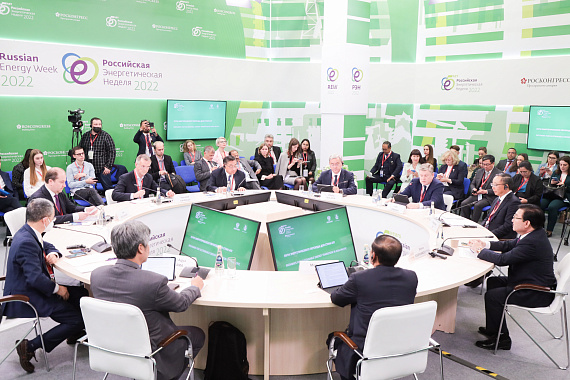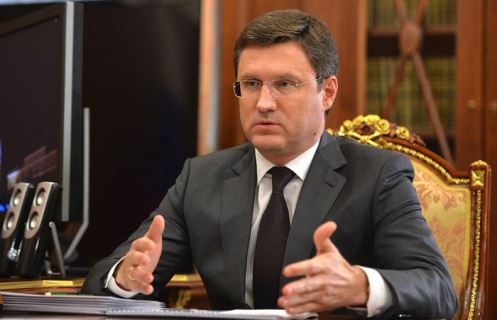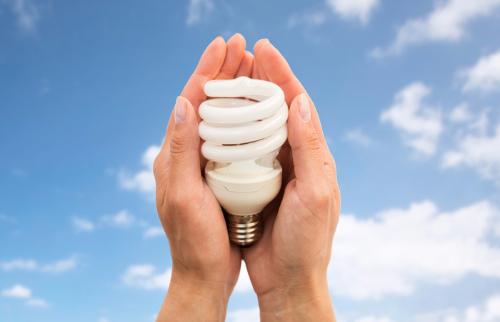Pathways for Sustainable Energy Transition in Asia-Pacific

Key conclusions
Russia and Asia hold a key position in the global energy sector and have great potential
“In order to enhance Russian–ASEAN research, technology and innovation cooperation, the year 2022 has been declared the Year of Science and Technology Cooperation between Russia and ASEAN, with a series of joint activities and the launch of a whole range of high-tech joint projects with partners from ASEAN countries. Russia and ASEAN countries can and should find solutions and tools of cooperation to jointly conduct substantive work within the energy and environmental agenda, ensuring conditions for sustainable socio-economic development,” Ivan Polyakov, Chairman, Russia–ASEAN Business Council.
“Asia-Pacific will play a critical role in the energy transition – it is the centre of global population growth. Asia-Pacific countries now account for more than half of the world’s energy consumption and also account for about 40% of total emissions. Many countries in the region have set targets to reach zero emissions by the middle of this century. More and more countries are becoming leaders in renewable energy use in our region,” Hongpeng Liu, Director of the Energy Division, United Nations Economic and Social Commission for Asia and the Pacific (ESCAP); The Global Energy Prize Expert.
Natural gas remains a promising energy source for Asia-Pacific countries
“According to a number of energy projections, the share of gas in the global fuel and energy mix is expected to increase from 23% to 26% by 2050, thanks to the abundance, affordability and environmental friendliness of natural gas. The highest growth in gas consumption is expected in Asia-Pacific due to the rapid growth of its economies,” Alexey Kulapin, General Director, Russian Energy Agency (REA) of the Ministry of Energy of Russia.
“The future of ASEAN and the ASEAN environment depends to a large extent on the prospects for an effective transition to cleaner energy sources. We believe that natural gas is the optimal, most realistic alternative as an energy source for industry and for transport,” Carlos Sorreta, Foreign Affairs Undersecretary for Multilateral Affairs and International Economic Relations of the Republic of Philippines.
Problems
Negative impact of external factors on the Asia-Pacific energy market
“The COVID-19 pandemic and the current geopolitical crisis can be seen in terms of the implications for the energy sector. The Asia-Pacific region, in our view, is not on track to meet SDG 7 [‘Ensure universal access to affordable, reliable, sustainable and modern energy for all’, one of the 17 UN Sustainable Development Goals, – Ed.],” Hongpeng Liu, Director of the Energy Division, United Nations Economic and Social Commission for Asia and the Pacific (ESCAP); The Global Energy Prize Expert.
“Adequate foresight will enhance the investment attractiveness of energy projects in ASEAN countries. At a time when the global energy sector, the global fuel and energy complex is subject to such major changes, impacts, when we live in an era of new uncertainties and turbulence, an open and trusted dialogue is more important than ever,” Alexey Kulapin, General Director, Russian Energy Agency (REA) of the Ministry of Energy of Russia.
High dependence on conventional energy resources in Asia-Pacific countries
“We know that currently 60% of ASEAN countries’ energy needs are met by coal. But coal is something we have to get rid of,” Nuki Agya Utama, Executive Director, ASEAN Centre for Energy.
“We do not have the resources to satisfy our energy hunger. We are very dependent on diesel, and we still use coal. We use coal, among other things, to generate electricity, and this is certainly not an environmentally friendly approach. We are gradually trying to move towards more sustainable, more responsible energy consumption, but now, with global tensions, geopolitical tensions, it is quite difficult,” Carlos Sorreta, Foreign Affairs Undersecretary for Multilateral Affairs and International Economic Relations of the Republic of Philippines.
Solutions
Increased introduction and use of new technologies in the energy sector
“So how can the energy transition be achieved? This can only be achieved by implementing new approaches, introducing, disseminating new technological solutions, and by switching to new energy systems that reduce emissions into the atmosphere,” Hongpeng Liu, Director of the Energy Division, United Nations Economic and Social Commission for Asia and the Pacific (ESCAP); The Global Energy Prize Expert.
“How can we achieve zero carbon emissions? Any technology can be used that will allow us to achieve this goal. These are carbon capture technologies, hydrogen production technologies, and energy efficiency technologies,” Branko Milicevic, Economic Affairs Officer of the Group of Experts on Gas, United Nations Economic Commission for Europe.
“We are ready for open, trusting, and honest cooperation. We are prepared to provide technology and solutions. For our part, we are ready to participate in research,” Vsevolod Gavrilov, Managing Director of the Center for Digital GR Initiatives, Sberbank.
Accelerating the transition to green energy sources
“With regard to the prospects of natural gas, the use of renewable sources should be supported. Especially in view of the large-scale deployment of low-carbon development technology,” Shixian Gao, Economic Advisor, Embassy of the People’s Republic of China in the Russian Federation; Deputy Director General, Energy Research Institute (ERI) (2014–2022).
“It is important, among other things, to develop renewable energy sources. Such as wind power, solar energy. It is also crucial to ensure efficient transmission and storage systems for this energy – all of which should enable us to make the most efficient use of new energy sources to meet our needs,” Hongpeng Liu, Director of the Energy Division, United Nations Economic and Social Commission for Asia and the Pacific (ESCAP); The Global Energy Prize Expert.
For more information, visit the Roscongress Foundation’s Information and Analytical System roscongress.org and the official Forum website rusenergyweek.com.





